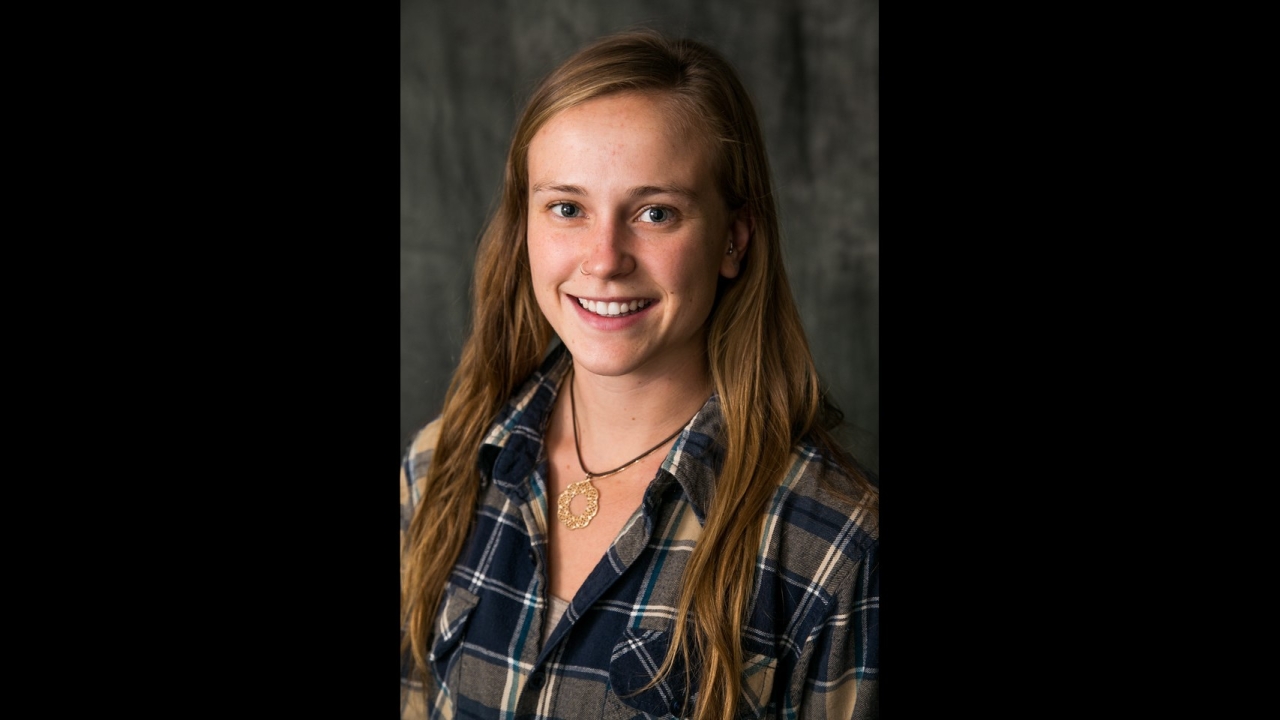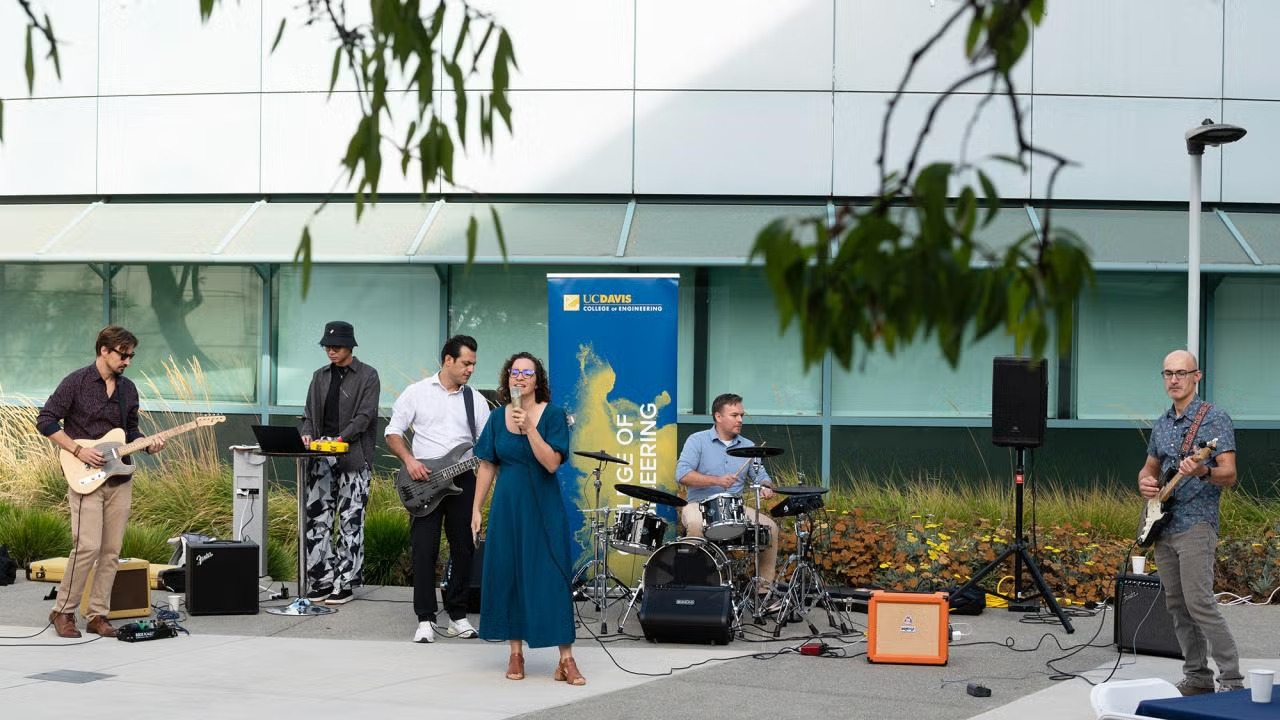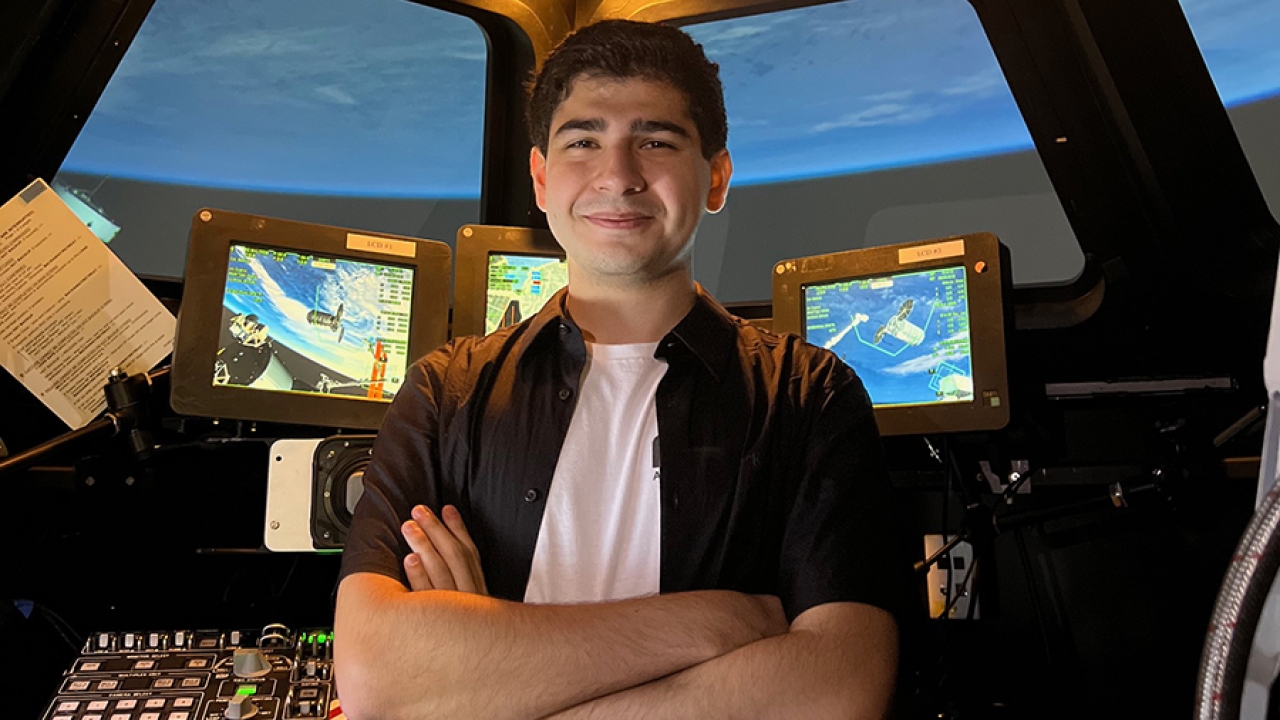
Dr. Jennifer Nill Receives the 2020 Zuhair A. Munir Award
Dr. Jennifer Nill is this year’s recipient of the Zuhair A. Munir Award for the best doctoral dissertation in the College of Engineering. She received her Ph.D. in chemical engineering in December 2019.
The overall goal of Nill’s dissertation was to understand how the accessibility of cellulose to cellulases evolves with substrate conversion as a function of cellulose source, processing history and cellulase synergy. Understanding cellulose will allow researchers to design pre-treatments that will help make the overall process of creating valuable materials from plants cheaper and more efficient.
Cellulose, a polymer from plants, can be broken down into glucose molecules using specialized enzymes called cellulases. These glucose molecules can then be turned into soluble sugars that can be used to make fuel, plastics or chemicals, making cellulose a key to the next generation of sustainable biofuels. However, nature makes it difficult to break down cellulose, so Nill is looking at ways to make this easier.
“For the first time, Dr. Nill’s work puts forth a quantifiable substrate property that she has shown to be the reason why cellulose hydrolysis slows down before cellulose is fully consumed,” said Tina Jeoh, associate professor in the biological and agricultural engineering department. “Dr. Nill’s work provides a tractable substrate parameter that can accurately simulate and predict ultimate outcomes of cellulose hydrolysis reactions. Her dissertation is a breakthrough that will prove to be seminal.”
Nill uses a technique that combines infrared light and atomic force microscopy to obtain chemical and physical images of cellulose on the nanoscale to show a sample’s accessibility to enzymes. With this and a biochemical measurement, she can measure the number of binding sites where an enzyme can attach to and break down cellulose to better understand what features of the material control how fast it can react with cellulases, as well as how factors like source and processing affect it.
“I was really excited to get this award,” said Nill. “Throughout my dissertation, I had a strong support network of women engineers, scientists and many amazing female mentors.”
Nill has presented her work at a number of professional venues and has been recognized with awards numerous times. She has presented posters at five conferences and received awards for four of them.
“These awards speak to the impact of her work in her research community and her ability to effectively communicate her work,” said Tanya Kuhl, professor and chair of the chemical engineering department. “Dr. Nill exemplifies the very best of our department, her research is innovative, cutting-edge and will make a significant impact in the advanced cellulosic biofuels industry.”
Although Nill graduated last year, she is continuing her work at UC Davis in the Jeoh Lab as a postdoctoral scholar.
“UC Davis gave me many mentoring opportunities and taught me how rewarding reaching out to inspire younger generations of girls and other underrepresented minorities to pursue STEM careers can be. Moving forward, I hope I can be as supportive and inspiring to other women in STEM as those in my life were and still are for me,” said Nill.
Zuhair A. Munir led the College of Engineering as dean from 2000 to 2002 and served as associate dean for graduate studies for 20 years. Established in 1999, the annual Zuhair A. Munir award honors the student who has submitted the best doctoral dissertation based on outstanding research conducted in the college. This award also acknowledges the mentorship of the recipient’s major professor(s).




